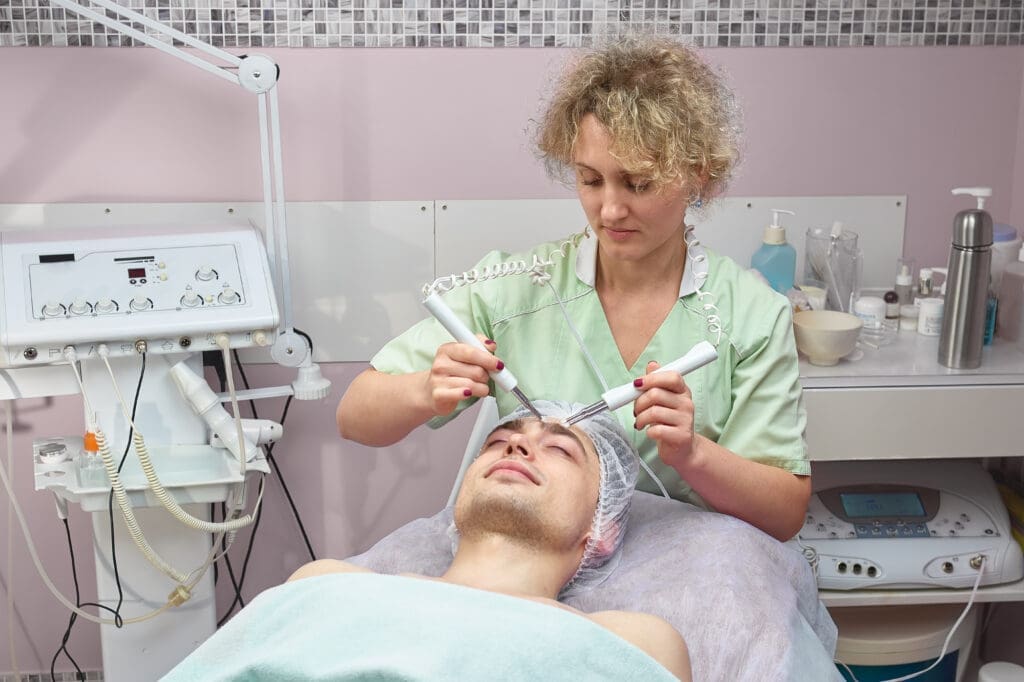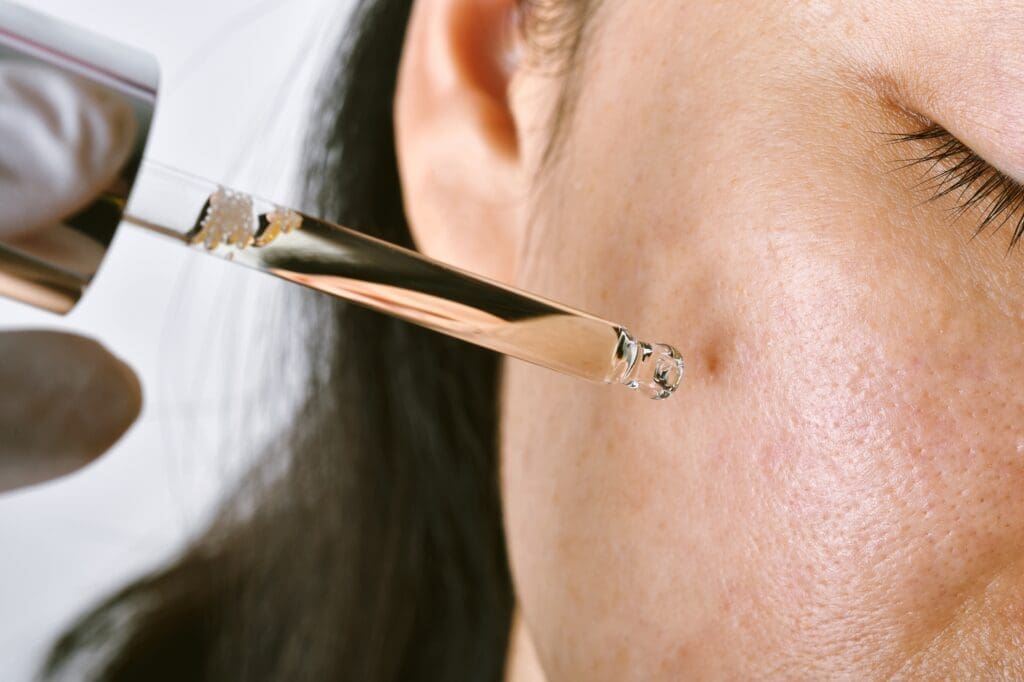
Reviewed by: Joshua M. Newman, M.D.
According to the American Cancer Society, more people are diagnosed with skin cancer each year in the U.S. than all other cancers combined. It presents in various forms, with basal cell carcinoma, squamous cell carcinoma, and melanoma being the most common types.
Medical professionals highly recommend early skin cancer diagnosis to ensure effective treatment, enhance survival rates, and minimize potential side effects. Among numerous treatment options for the common types of skin cancers, Mohs Surgery is the ‘Gold Standard.’ This procedure is renowned for its precision, high cure rate, and the preservation of healthy tissue, marking it as a pivotal advancement in skin cancer therapy.
What is Mohs Surgery?
Mohs Surgery, named after the physician who developed it, Dr. Frederic E. Mohs, is a precise surgical technique used in skin cancer treatment. It involves the progressive removal and examination of thin layers of cancer-containing skin until only cancer-free tissue remains. This technique is unique in its meticulous approach, which allows for the maximal preservation of healthy skin while ensuring a thorough removal of all cancer cells.
Expert insights from the Dermatologic Surgery at Yale Medicine explain that traditional pathology specimens are similar to a loaf of bread sliced across the top—only about 3% of the total surface area of the cancer’s margins is evaluated. However, with Mohs Surgery, the examination extends to the entirety of the surface area.
This is important because many basal cell cancers and squamous cell cancers grow microscopically small, root-like extensions that could be missed with traditional excision and tissue examination methods.
Click here to learn more about skin cancer treatment at AMARA.
6 Exceptional Benefits of Mohs Surgery
- Highest Cure Rate: Mohs Surgery has an impressive cure rate of up to 99% for new skin cancers and 94% for recurrent skin cancers, making it the most effective treatment available.
- Lower Recurrence Rates: Mohs Surgery’s preciseness significantly reduces the chance of cancer recurrence. This is because the technique ensures all cancer cells are removed, thus preventing further spread.
- Efficient: Its high success rate in removing all cancer cells in a single session means fewer treatments and lower overall healthcare costs.
- Reduced Scarring: Mohs Surgery is a tissue-sparing procedure, meaning less skin is removed than other procedures. This lowers the chances of scarring and disfigurement, which is especially important for cancers in visible areas like the face.
- Comfort of the Procedure: Most patients experience Mohs Surgery under local anesthesia, contributing to a more comfortable and less stressful experience.
- Expertise of Fellowship-Trained Mohs Surgeons: Mohs surgeons undergo extensive training, ensuring they have the knowledge and experience to remove skin cancer while successfully lowering damage to healthy tissue.

Mohs Surgery for the Face
Mohs surgery on the face is particularly beneficial because it preserves as much healthy tissue as possible while ensuring that all cancerous cells are removed. This is critical, as the face is a highly visible and sensitive area. The Mohs procedure’s tissue-sparing nature is ideal for cancers in delicate areas such as the nose, ears, and eyelids, minimizing cosmetic impact and maximizing the potential for a full recovery.
Mohs Skin Cancer Treatment at AMARA
At AMARA, our team includes highly trained professionals like Dr. Joshua M. Newman, a general, surgical, and cosmetic dermatologist specializing in diagnosing and treating skin conditions, including skin cancers. Dr. Newman is known for his proficiency in Mohs Micrographic Surgery, which aims to achieve the best possible cure rates for advanced skin cancers.
AMARA offers both surgical and non-surgical cosmetic and dermatology procedures in a serene, state-of-the-art setting. Our inspiration stems from a theme of beauty and peace, appropriately aligning with the meaning of ‘Amara’—grace. When you choose AMARA, you choose world-class service in a comfortable, modern environment.
For residents of Venice, FL, or those nearby, Mohs surgery in Venice, FL, is available at AMARA with Dr. Newman’s expert care, ensuring the highest standards in skin cancer treatment.
Mohs Surgery Recovery
The recovery after Mohs surgery is typically quick, as it is often performed under local anesthesia. Afterward, most patients can return to their regular activities the same day or within a few days. However, post-surgery care is important to ensure proper healing and minimize the risk of infection. While the treated area may be slightly red and swollen immediately after the procedure, these symptoms generally subside within a few days. Full healing may take a few weeks, depending on the area treated and the complexity of the surgery.
For more information on skin cancer testing and treatment, visit our website to contact us, or schedule an appointment with Dr. Joshua M. Newman.
**While we strive to provide accurate and up-to-date information, medical knowledge is constantly evolving, and new research may change the nature of certain conditions. Please remember to consult with a healthcare professional or dermatologist for proper diagnosis, treatment, and guidance regarding skin cancer or any other medical condition.**

